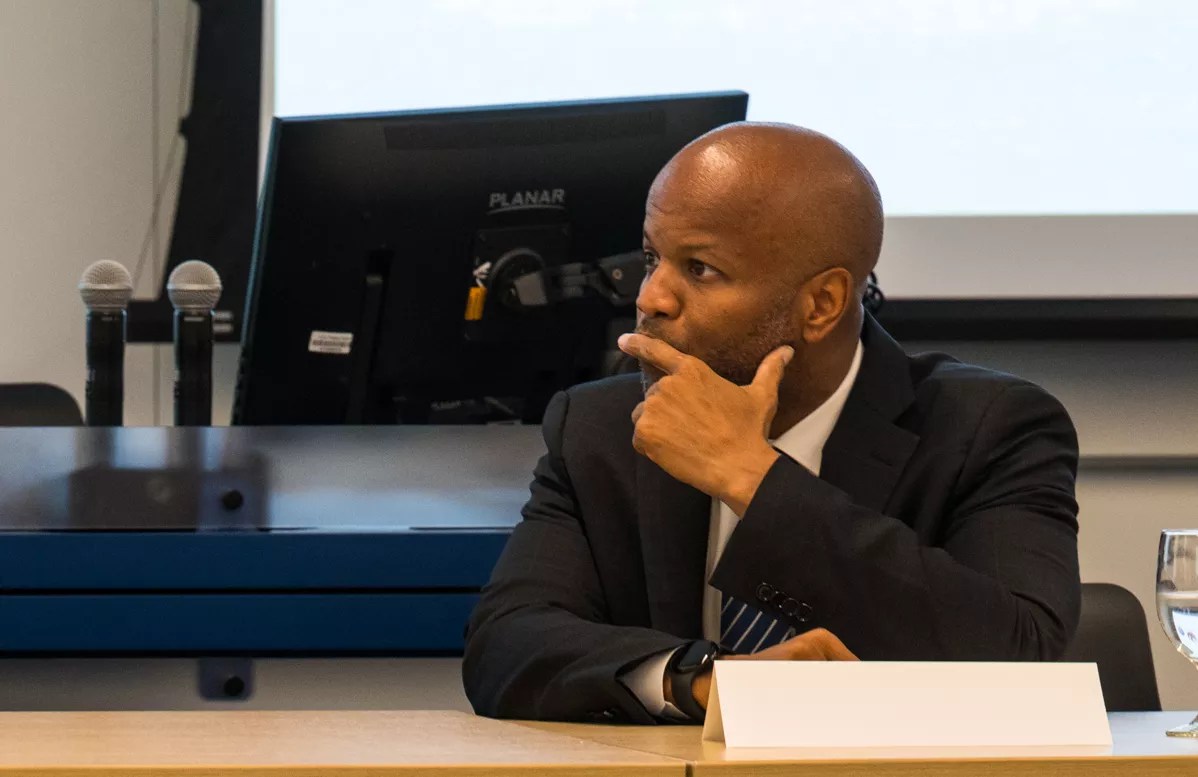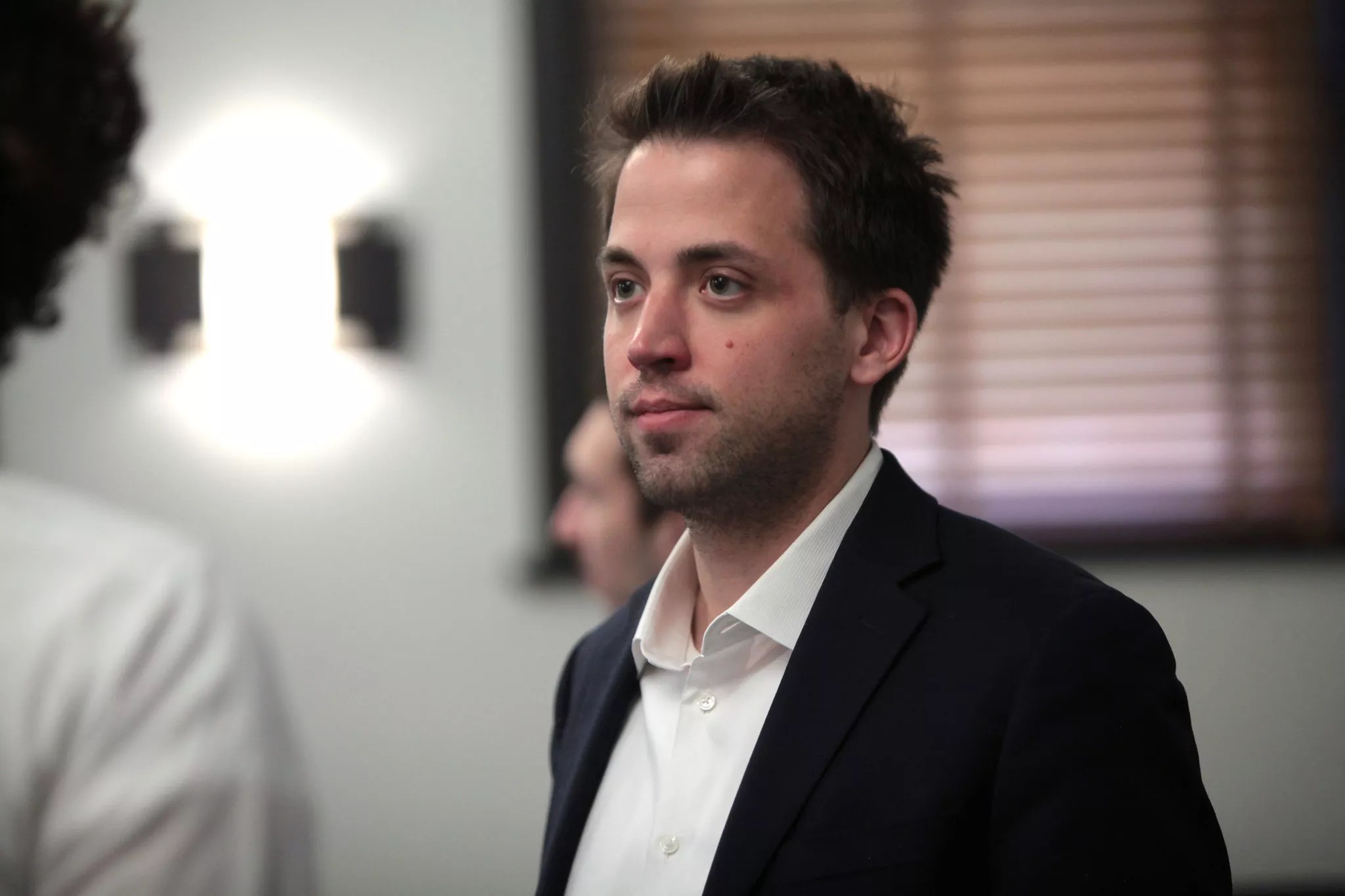
U.S. Department of Labor/Flickr/CC BY 2.0

Audio By Carbonatix
Editor’s note: This story was updated to include comments from Tempe spokesperson Kris Baxter-Ging.
***
When they think nobody’s listening, Tempe officials don’t seem to have qualms about mocking their constituents.
The Tempe City Council assumed it was protected from prying ears when it went into a closed-door meeting on Dec. 15, 2022. According to the minutes from the meeting, councilmembers needed secrecy to discuss “their personal observations of Tempe residents conveying support” for a new arena for the Arizona Coyotes. What the councilmembers and Mayor Corey Woods actually said was a bit more colorful than that.
According to an audio recording of the meeting, the officials used their shroud of secrecy to disparage arena opponents. Citizens who campaigned against the arena were “cave people,” while arena opposition ringleader Ron Tapscott was a “crazy uncle.”
The city released the tape on Jan. 10 in response to a public records request from Tempe resident Mario Martinez, who then shared it with New Times.
Despite the dismissive monikers, the crazy uncle and the cave people ultimately won. In May 2023, Tempe voters handily rejected a ballot referendum to support a new home for the Coyotes, who have since moved to Utah.
The recording became public because, essentially, it should have been public all along. In October, the Arizona attorney general found that the Tempe City Council broke the law by holding three “executive session” meetings that the public was barred from observing. During those meetings, the council discussed the secret monitoring of social media backlash to the arena proposal. As a result, the city has been forced to cough up tapes from those meetings.
Only the Dec. 15 meeting was recorded, according to Tempe City Attorney Eric Anderson and city spokesperson Kris Baxter-Ging. The tape released contains just the portion of the meeting that violated public meeting law.
Baxter-Ging said the other two illegal meetings, on Nov. 3 and Nov. 22 of that year, weren’t recorded because “E-sessions are typically not recorded. The clerk in the (Dec. 15) session was filling in for the City Clerk and recorded the meeting to maintain better minutes as it was her first time filling in.”
What was said in the other two illegal meetings – and who else Tempe officials might have belittled behind closed doors – remains a mystery.
“Arizona’s Open Meetings Law requires that the public’s business be done in public,” said Jon Riches, the vice president of litigation for the Goldwater Institute, a libertarian think tank. “The city of Tempe should not, and legally cannot, hide public activities by discussing this sort of information behind closed doors. This is especially troubling because the city used taxpayer funds to monitor and then secretly discuss citizens who were opposed to a controversial city proposal.”

After failing to land a new arena deal in Arizona, including in Tempe, the Arizona Coyotes moved to Salt Lake City last year.
Benjamin Leatherman
‘Cave people’
In the recording of the Dec. 15 meeting, which Tempe officials held with consulting company Strategy 48, Woods and others vented their frustration with anti-arena activists. Woods harbored a particular disdain for Tapscott, whose Tempe 1st organization played a major role in whipping up opposition to the arena ballot measure.
“Ron is your crazy uncle forwarding a chain letter,” Woods said during the meeting. “I mean, at some point, people begin to tune you out because it just becomes … he just won’t stop ranting about it. It’s like, oh my God, we know you don’t like it, just vote no in May and leave us alone.”
Woods did not respond to New Times’ inquiry. Tapscott could not be reached.
In the tape, Strategy 48 consultant Troy Corder referred to Tempe residents who were opposing the project as “folks who just like to yell at each other” and “cave people,” which he explained was a belittling acronym.
“We haven’t seen where (arena opposition has) gotten to the normal folk,” Corder said. “Right now what we’re seeing is there’s just the typical, who I call the cave people – citizens against virtually everything.”
“Yes, exactly,” said Tempe Vice Mayor Jennifer Adams.
Woods then called Tapscott “our self-appointed emperor of cave” and noted that his posts were not receiving much engagement before dropping the “crazy uncle” comparison. Then Woods called on fellow councilmember Randy Keating.
“Councilmember Keating, who I now owe royalties for using the ‘crazy uncle’ line, so I’ll have your checks in the mail,” Woods said.
“Yeah,” Keating retorted to raucous laughter from Woods, “you can just Venmo me, man.”
For Greg Leslie, the executive director of the First Amendment Clinic at Arizona State University, Tempe’s misuse of executive session is emblematic of a larger problem. “Public officials nationwide have routinely ignored or misused the rules for executive sessions, so that they can discuss something they want to keep secret,” he said.
But a general desire for secrecy isn’t enough justification for going into executive session, Leslie added. “It should be used when something must be kept confidential,” he said – like to discuss legal advice, “not when you want to talk to a consultant who’s been paid to track your opponents.”
“The exemption is meant to be narrow and protect a true, legal interest in confidentiality,” Leslie said. “It should never be a tool to promote secrecy to get away with something that is definitely the public’s business.”

Tempe City Councilmember Randy Keating, pictured, joked with Mayor Corey Woods about a vocal opponent of a proposed hockey arena during an illegal secret meeting in 2022.
Gage Skidmore/Flickr/CC BY-SA 2.0
A lot of money to be wrong
Despite having paid Strategy 48 to keep its finger on the pulse, the recording also revealed that some Tempe officials dramatically underestimated the current of opposition to the arena plan.
Woods noted he was concerned that some people who supported the project decided to be silent on social media to avoid arguments. Keating also seemed to believe that the plan enjoyed broad public support.
“I can say 100% of the people I’ve talked to are in support of the project – and it’s not like I’m in my own echo chamber, either,” Keating said. (He was.) “The echo chamber tends to portray like it has more gravity than it normally does.”
Keating did not respond to a request for comment.
During an executive session meeting two months earlier, the council agreed to pay $10,000 a month to Strategy 48 to surveil and analyze social media activity related to the arena project. The council did not sign a formal contract with the consulting company nor discuss the agreement publicly, which the attorney general’s office determined was legal. The council is not required to publicly approve any contracts less than $100,000.
However, discussing the results of Strategy 48’s social media monitoring in secret did violate the law. Tempe’s councilmembers were required to “receive training on the Open Meeting Law,” according to the attorney general’s letter. That training, which was approved by the attorney general’s office, wound up being a 20-minute presentation from Anderson to the council on Nov. 19.
Strategy 48’s contract was for six months, but the agreement ended early in January 2023. According to the attorney general, Tempe paid the company a total of $32,258 to surveil its citizens online. The open meetings violation cost Tempe nearly as much. According to invoices from the law firm Ballard Spahr, which represented Tempe in dealings with the attorney general, Tempe paid more than $28,700 in legal fees. The invoices were released by the city attorney in response to a records request.
In total, the council’s decision to secretly monitor social media wound up costing taxpayers $61,000.